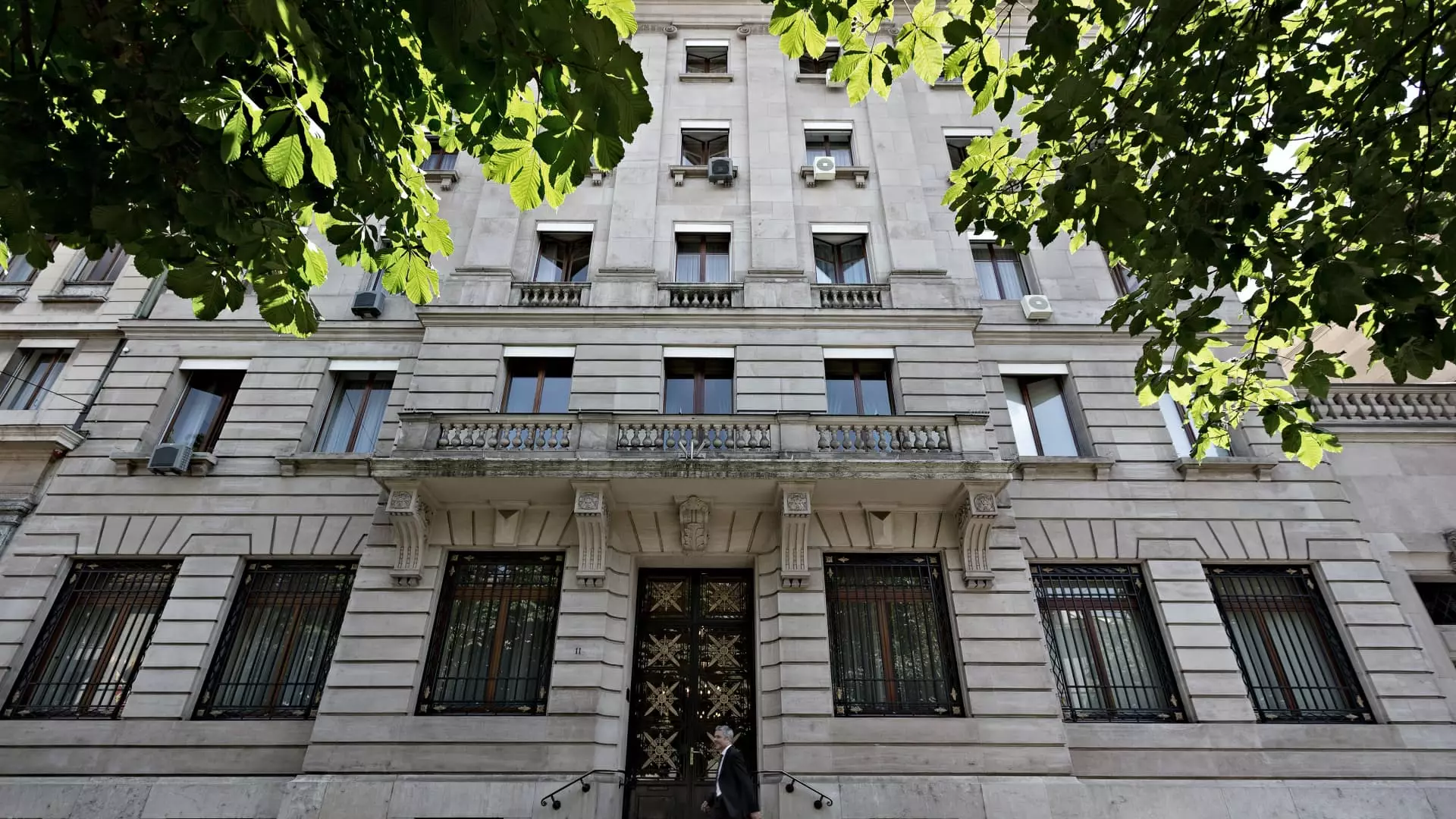Lombard Odier, a prominent private bank with deep historical roots in Switzerland, has found itself embroiled in a high-profile legal scandal. Recently, Swiss prosecutors issued an indictment against the bank for “aggravated money laundering,” raising significant concerns regarding its operational integrity and compliance protocols. This indictment, which also names a former employee, links the bank to the alleged financial malfeasance orchestrated by Gulnara Karimova, the daughter of Uzbekistan’s late president, Islam Karimov. The fallout from this case not only threatens the reputational standing of Lombard Odier but also calls into question the wider regulatory framework surrounding private banking in Switzerland.
The indictment stems from accusations that the bank facilitated the laundering of funds tied to criminal enterprises connected to Karimova. Specifically, authorities allege that between 2005 and 2012, Karimova’s operations generated illicit proceeds that found their way into Lombard Odier’s accounts in Geneva. These funds are believed to be linked to what has been described as “The Office,” a criminal organization purportedly established by Karimova. The Office of the Attorney General of Switzerland (OAG) reported that it had conducted extensive investigations since 2016, leading to the current legal action.
In response to the indictment, Lombard Odier has firmly denied any wrongdoing, declaring the allegations as baseless and without merit. They attribute the situation to insufficient controls rather than deliberate malfeasance, which raises questions about the robustness of their internal compliance measures. The bank highlighted that its cooperation during the investigatory phase, including proactively reporting suspicions to authorities, reflects its commitment to governance and ethical banking practices. Lombard Odier’s assurance to defend itself vigorously suggests that they are prepared for a protracted legal battle, which could further impact their operations and client relations.
The implications of this scandal extend beyond Lombard Odier. As one of Switzerland’s oldest banks, its involvement in a case of this magnitude could lead to increased scrutiny of private banking practices in the country, especially concerning anti-money laundering (AML) regulations. Furthermore, with the international community already paying close attention to financial crimes and regulatory compliance, this incident may catalyze calls for reform to enhance oversight in the banking sector.
As Lombard Odier navigates these tumultuous waters, the outcome of this case will not only determine the future of the bank but also serve as a litmus test for the efficacy of Switzerland’s financial regulatory environment. With Karimova already serving time for her involvement in criminal activities, the stakes are high. This scenario underscores the critical importance of stringent compliance frameworks in preventing the financial sector from being exploited for illicit gains. Moving forward, it is vital for institutions like Lombard Odier to reinforce their commitment to transparency and ethical practices in order to regain trust in the eyes of their clients and the broader financial community.

